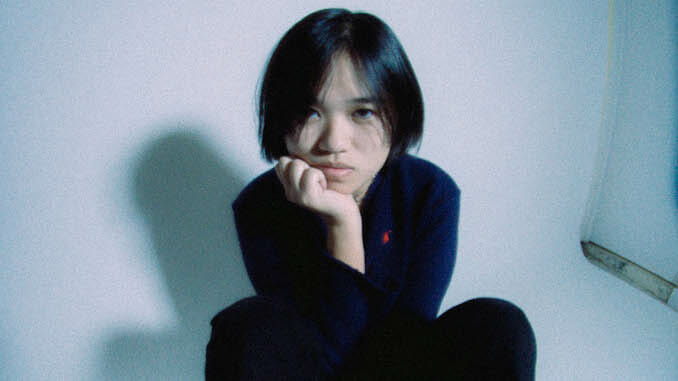Hana Vu: The Best of What’s Next
Photo by Jing Feng
For years, Paste has introduced exciting, up-and-coming artists to our readers. This is the return of The Best of What’s Next, a monthly profile column which highlights new acts with big potential—the artists you’ll want to tell your friends about the minute you first hear their music. Explore them all here.
Hana Vu and I greet each other over Zoom and discover that we are both seated on the floor, backs against our couches, with our laptops on our coffee tables. I apologize for my disheveled appearance, to which Vu replies, “That’s okay! Sorry, you look amazing. I didn’t mean to affirm that you looked like garbage.” However, I believe even if I did look bad, Vu would see the beauty in it.
Vu has entered her 20s with the breathtaking debut Public Storage, released in November. Whereas Taylor Swift crafted heartfelt confessionals of love and loss (and eventually revisited Red through a more mature lens), Vu expands upon the groundwork laid by sad-girl heroes such as Swift, Japanese Breakfast and Mitski with her own adolescent flair as she confronts the universe with a lifetime’s worth of knowledge ahead of her. I catch myself forgetting Vu is only a few years younger than me, as she possesses an immense knowledge and wisdom that comes with being surrounded by the energy of Los Angeles.
Previous coverage of Vu has focused on her age and, to be fair, it is hard to separate Vu’s unbelievable talent from her youth. She has been cultivating her sound since she was only 14, playing in bands around the once-burgeoning Los Angeles underground scene. That’s not to say the scene isn’t still alive, but a lot changed as Vu grew.
“I don’t really see that there’s like a big DIY team community in L.A. anymore, but maybe I’m just like, you know, too old now to be in the know about it. There were a couple all ages, venues that were really big. When they closed down, or moved locations or whatever, people lost general interest,” Vu explains. “Then again, I mostly would play in parking lots or under an underpass … or in a bus.”
These scattered and scrappy memories of growing up in the punk and indie underground of a city as big as Los Angeles were crucial to Vu. It all started with a simple desire: to belong. “When I was a teen, that’s where all the cool kids were! They were always at the warehouse shows over the weekends. I wanted to be a part of that.”
Asked what she took away from her unconventional upbringing, she replies, “I just felt like I was doing something with myself.”
Within the confines of her bedroom, Vu began experimenting with electro-pop and fuzzy, distorted indie pop. While working on her conceptual dual EP Nicole Kidman / Anne Hathaway, Vu watched interviews of the actresses to create elaborate backstories for them that are tragic and relatable, digging into the unconscious performance of daily life. Much of that adolescent desire to belong, but also subvert is still present in Vu’s work.
Public Storage prefers to sit in the uncomfortable, bringing life to the intrusive thoughts that play in your head. On opening track “April Fool,” Vu’s echoing vocals ease into the repetitive piano as she asks, “What could you say to a man with a gun? / Could you say that I’m on my way home and I’m already late?”
Vu wrangles with guilt across Public Storage in an earnest display of vulnerability, whether admitting “Evil is my name, I guess I earned it” on “Everybody’s Birthday,” or “I’m just the world’s worst talker” on “World’s Worst.” Vu manages to capture tiny moments of anxiety and grief, magnifying them until they become tangible and impossible to ignore. Underneath the fuzzy guitars and Vu’s crisp, liquid vocals is the innate desire to question and confront, doused with a healthy amount of shame.
-

-

-

-

-

-

-

-

-

-

-

-

-

-

-

-

-

-

-

-

-

-

-

-

-

-

-

-

-

-

-

-

-

-

-

-

-

-

-

-








































